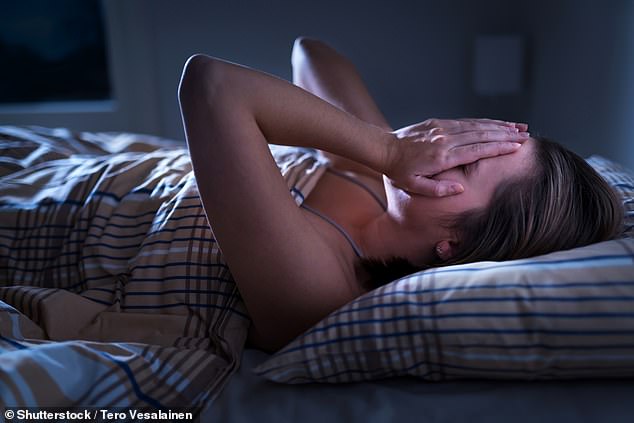Women feel angrier in the days leading up to their period, research shows
- Research shows that women report increased feelings of anger in the run-up to menstruation
- They are also more likely to experience disruptions in their sleep patterns
A study has confirmed what women have known for centuries: your menstrual cycle really affects your emotions.
Researchers from the University of East Anglia say women feel angrier in the days leading up to their period.
They are also more likely to experience disruptions in their sleep patterns during this period.
“Our research provides valuable insights into the complex interplay between menstrual cycles, emotions and sleep and the impact of hormonal fluctuations on women’s well-being,” said Dr Jo Bower, co-author of the study.
“By understanding how these factors interact, we can better meet women’s unique needs for sleep health and emotional well-being.”
Researchers from the University of East Anglia say women feel angrier in the days leading up to their period (stock image)
The complaints that women can experience in the weeks before menstruation – also called premenstrual syndrome (PMS) – have been extensively studied for years.
However, to date, the links between menstrual phases, emotional states and sleep quality have not been explored.
In their new study, the team analyzed data from 51 healthy women aged 18 to 35, who had regular periods and were not using hormonal contraception.
The women completed daily self-reports about their sleep and emotions, and wore sleep watches for two menstrual months.
The results showed that the women experienced disruptions in their sleep patterns in the days leading up to their periods.
During this so-called peri-menstrual phase, women also reported increased feelings of anger compared to other phases of their menstrual cycle.

The women experienced disruptions in their sleep patterns in the days leading up to their periods (stock image)
Additionally, the women reported decreased positive emotions during this phase – including calmness, happiness and enthusiasm.
Overall, the findings suggest that hormonal fluctuations can influence sleep disorders and emotional problems in women.
“The implications of this research extend beyond the controlled setting, offering potential avenues for interventions and treatments aimed at improving sleep quality and emotional resilience in women,” added Dr. Bower added.
The researchers highlight a number of important limitations of the study.
The data was collected at the height of the Covid-19 pandemic and its impact cannot be fully known.
The sample size was also very small and a larger study is needed to verify the findings.
